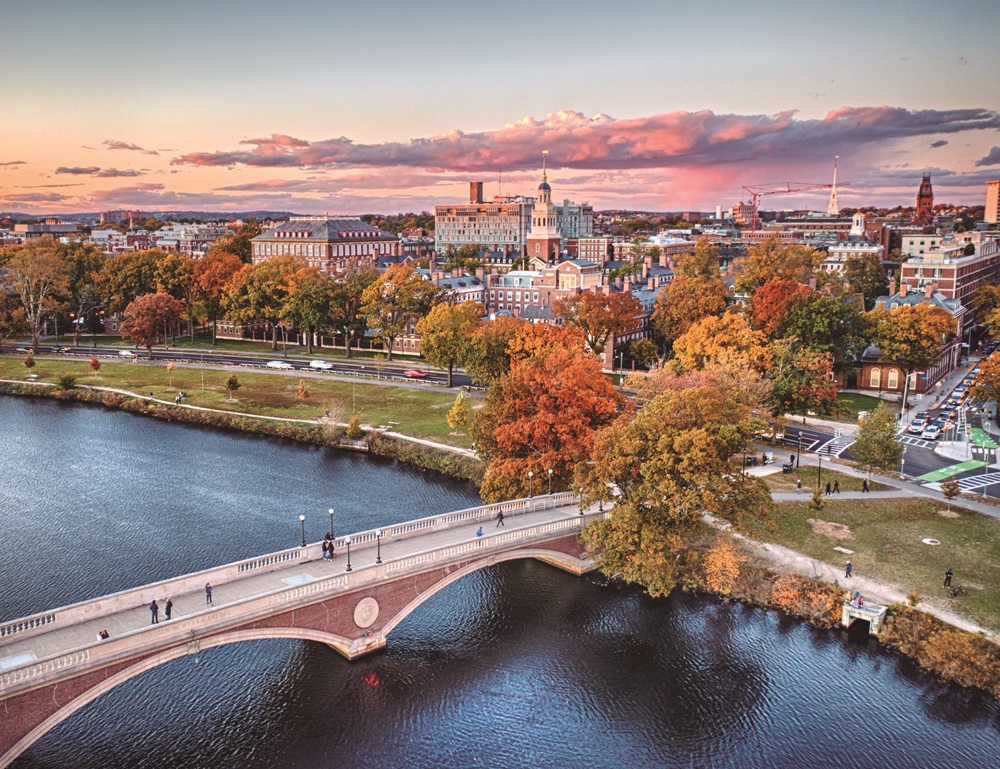The Intergovernmental Panel on Climate Change (IPCC) released its Sixth Assessment Report on March 20, 2023. The report details the devastating consequences of rising greenhouse gas emissions around the world and the increasingly dangerous and irreversible risks should we fail to change course. But the IPCC also offers hope, highlighting pathways to avoid these intensifying risks. In Cambridge, we are working to shift both new and existing buildings off fossil fuels and onto renewable electricity sources to eliminate their emissions. We are also working on expanding and creating new programs and policies that focus on reducing greenhouse gas emissions, scaling up carbon removal, and building resilience.
Requirements Target Large Building Greenhouse Gas Emissions
In June, the City of Cambridge became the first known city in the country to mandate non-residential buildings to reduce their greenhouse gas emissions with a net zero requirement by 2035 for large buildings and 2050 for mid-size buildings. More than two years in the making, this was the latest milestone of many for the City under the Building Energy Use Disclosure Ordinance (BEUDO), which was first enacted by the Cambridge City Council in 2014 and requires large buildings to track and report their energy and water use to the City. While Massachusetts and the country have committed to net zero greenhouse gas emissions by 2050, the City of Cambridge has now set a more aggressive initial target of 2035 for large non-residential buildings in the City (100,000 square feet or larger).
More than 300 of the City’s large non-residential buildings will be mandated to achieve net zero by 2035. Building owners must effectively power their buildings with renewable energy -- either by investing in solar panels, geothermal, other onsite clean energy solutions or purchasing clean, renewable energy – and eliminate fossil fuel use in order to reach Net Zero. With the adoption of these newest amendments to the Building Energy Use Disclosure Ordinance, Cambridge’s BEUDO emissions will be reduced approximately 50 percent by 2030 compared to today and reduced by approximately 70 percent by 2035, leaving a small amount of emissions beyond 2040.
“The BEUDO emissions reduction mandates are the single most impactful piece of climate mitigation legislation that the City of Cambridge has ever adopted,” said Iram Farooq, Assistant City Manager of the Community Development Department. “These mandates signal a strong desire by the City to remain at the forefront of climate change.”
The Net Zero Task Force, the Cambridge Climate Committee, and the Climate Crisis Working Group urged the prompt advancement of stronger BEUDO performance requirements.
To provide support for building owners to navigate these regulations, the City has committed $2 million towards a technical assistance fund. The City is also committed to making renewable electricity widely available to property owners and working closely with Eversource and other utilities to ensure that the necessary infrastructure is in place to meet our climate goals. This includes access to renewable electricity through the City’s Community Electricity program.
With BEUDO, there is an ongoing, coordinated effort to reduce the worst impacts of climate change and slow the pace of global warming.
Robust Plans to Guide Climate Change Actions and Measure Progress
BEUDO is one of many community actions we are taking that are guided by the Net Zero Action Plan (NZAP) for buildings. The NZAP is the City’s roadmap to eliminating greenhouse gas emissions from all Cambridge buildings by 2050. It includes specific actions to reduce emissions, such as retrofitting existing buildings with energy-efficient technologies, promoting renewable energy sources, and implementing building codes that prioritize energy efficiency. The plan, which was most recently updated in January 2023, also addressed equity concerns to ensure that benefits are equitably distributed among all members of the community. A publicly available NZAP dashboard provides a clear overview of the progress towards our 2050 goal to be a net-zero community.


